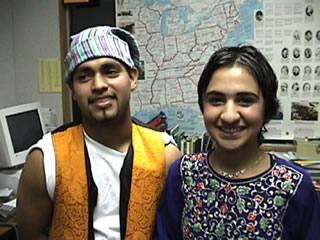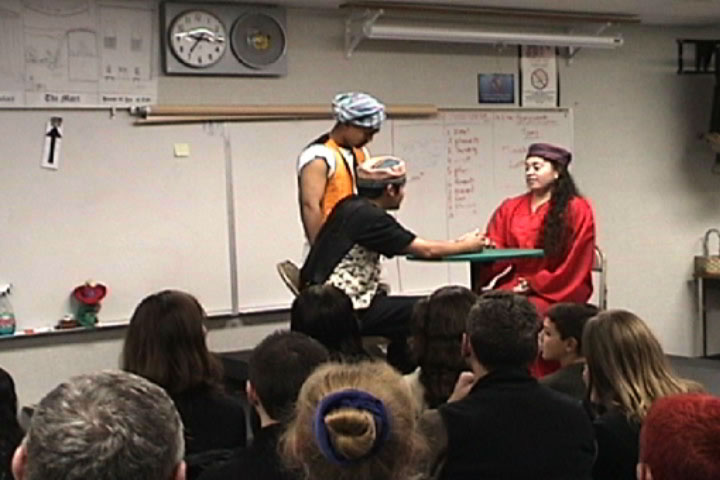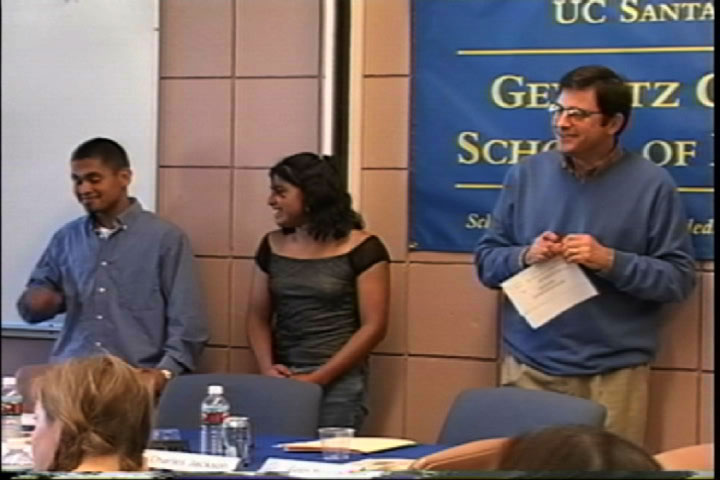I don’t know how you can "prove" everything that my kids
get out of being in the Sheltered Theater Production, despite
various quantitative methods you can use. In
my gut, I just know some things. I think probably the most important
thing they learn is how to get along, how to work together as
people, how to be compassionate, the kinds of things you can’t
measure on a bubble test. But if you look at what
we’re doing here on paper, there’s no way it should
work. You have kids who don’t speak English, and many who
can’t read, behavior problems—it’s Shakespeare,
and many have never acted before, most of them don’t
even want to be in the class in the beginning. The counselors
size them up, have to find a place for them, and say, “Just
go here, you’ll like it.” So there’s
no way it should work, and yet it does, and they turn out
to be so supportive of each other, and so to the task. With these
girls playing the narrators, one of the people forgot to bring
the wine goblet on stage, and I saw them, they’re poring
through the script to find the appropriate time that one of them
should bring it on. In terms of engagement in the script,
and interpretation. And then in terms of a sense of community,
all those things are right there in that moment. I could
tell you that in terms of cutting, there’s much less of
that. I almost had no cuts after the first two weeks for several
years. But with 17 at-risk kids, I did see some cutting, this
was the hardest show to mount. I had a couple of people not
show to performances, and we had people cover their roles, which
shows commitment, versatility, understanding the text.
High Expectations
I have students sign a pledge that says if they don’t
come to the show, if they miss a performance, it’s an automatic
failure. I don’t know if I’ve failed anybody
in previous years, but I failed a couple of people this year. One
girl got into trouble the night of the opening and got suspended. I
have to protect the show and the other kids’ commitment.
What Students Take Away From the Sheltered Theater Production
I have a colleague in the English
department who gets a lot of these kids in the second semester
in English 9. Most kids are intimidated by Shakespeare. But
the kids who'd been in my class said, “Oh, Shakespeare,
we’ve
done this.” They actually were better with Romeo
and Juliet than the native speakers– so much so that
she had to get another Shakespeare play to keep them busy while
the native speakers were reading Romeo
and Juliet.
Another piece of anecdotal evidence is the experience of some
of my Special Needs students. I've had several students with Asperger's Syndrome, for instance. They have been some of my strongest actors; flexible, eager, consistent and very inventive. And they have really been appreciated by the other members of the company. It shows that mainstreaming really can work and have some very positive results for everyone.


